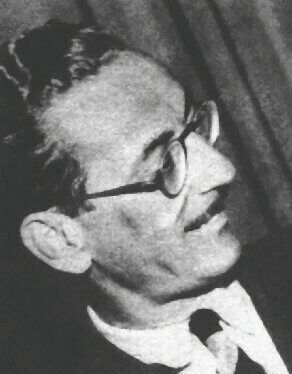|

Baixa dos Sapateiros, Salvador da Bahia,
circa 1940
Na Baixa do Sapateiro
Ary Barroso (1938)
Ai, amor ai, ai
Amor, bobagem que
a gente não explica ai, ai
Prova um bocadinho, oi
Fica envenenando, oi
E pro resto da vida é um tal de sofrer
Ô lará, ô lerê
Ô Bahia, iaiá
Bahia que não me sai do pensamento
Faço o meu lamento, oi
Na desesperança, oi
De encontrar nesse mundo
O amor que eu perdi na Bahia
Vou contar
Na Baixa do Sapateiro
Eu encontrei um dia
A morena mais frajola da Bahia
Pedi um beijo, não deu
Um abraço, sorriu
Pedi a mão, não quis dar
Fugiu
Bahia, terra de felicidade
Morena, ah morena
Eu ando louco de saudade
Meu Senhor do Bonfim
Arranje outra morena
Igualzinha prá mim
Ai Bahia, iaiá
|
Na Baixa
do Sapateiro
“Na Baixa do Sapateiro” (In the Shoemaker’s Hollow) is a song of unrequited love for a swarthy and captivating baiana. The title derives from a street in Salvador, Bahia, where many cobblers used to ply their trade (nowadays it’s a busy shopping street).
This beautiful samba-jongo was recorded by Carmen Miranda in 1938 and would have been included in the film Banana da Terra had Ary Barroso not demanded an absurdly high license fee. Instead, the film’s producer selected a song by a newcomer called Dorival Caymmi. The substitute song was “O Que É Que a Baiana Tem?” and it became a huge hit identified with Carmen Miranda for the rest of her short life.
Not that “Na Baixa do Sapateiro” suffered. It was soon to receive many more remarkable recordings. In 1939, Ary himself at the piano committed it to acetate, accompanied by crack guitarists Laurindo de Almeida and Garoto. The outstanding vocal group Quatro Ases e um Coringa (Four Aces and a Joker) added their version in 1946, followed by another top vocal ensemble, Os Anjos do Inferno (Hell’s Angels), in 1947 and the great singing star Dircinha Batista in 1950. Even earlier, the song had been included in the soundtrack of Walt Disney’s film The Three Caballeros (1944), where it was sung in both Portuguese and English by Nestor Amaral.
“Na Baixa do Sapateiro” is better known internationally as “Bahia” or “Baía.” In this guise, it is a BMI Million-Air, having been performed more than a million times on US radio and television.
|








